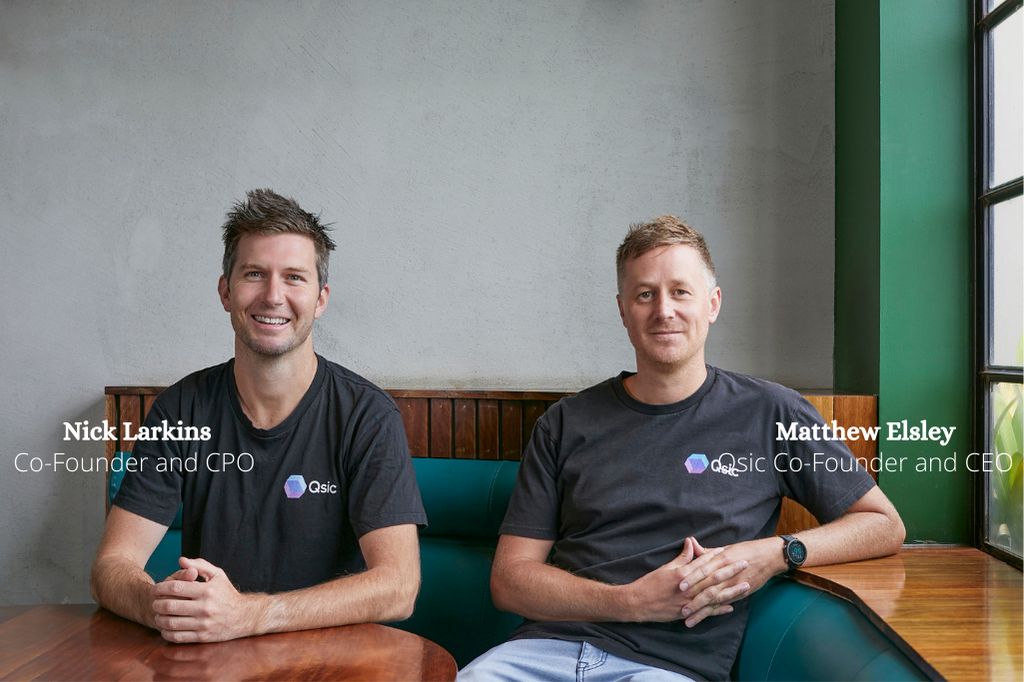10 Most Innovative Restaurant Tech Companies To Watch In 2022


Typically planned months in advance, it doesn't reveal much about a business’ real-time needs, which often change minute-to-minute. From order to service time frames to customer wait times and staff productivity measures – in-store tech is growing at a rapid pace, meaning QSRs now have incredible depths of real-time data at their fingertips. To better understand the potential of this data in the QSR industry (and their success in helping businesses capitalize on it), CIOInsights spoke to audio content and in-store infrastructure platform, Qsic, about the latest trends in restaurant tech. With analysis and insights becoming increasingly easy to access, predict and implement, the tools of yesterday are only part of today’s solution, says Nick Larkins, Qsic Co-Founder, and Chief Product Officer, Qsic. “We’re finding that efficiency and success are more likely to come to those who look at the entire operational picture. At QSIC, we’re helping QSRs apply AI and machine learning to their data points to create a more holistic brand experience. Together we’re creating more engaged, living spaces that better service both customer and employee needs,” said Larkins. Creating an all-encompassing in-store customer experience ecosystem has been a focus of Qsic’s since its start in 2012. The Australian-born company, which launched in the US in 2021 with the support of several leading QSR brands, is on a mission to help brands globally better understand and connect with their people — both internally (employees) and externally (customers). Believing deeply in the value of intelligent software in retail and QSR environments, the business has become a global leader in seamless and hyper-connected whole-of-store infrastructure networks. While its local customer list is still under wraps (but very recognizable and respected), the company is happy to disclose some of its Australian brands including 7-Eleven, McDonald's, Sushi-Sushi, and Mecca Cosmetica. Talking about future trends in the restaurant tech arena, Co-Founder and Qsic CEO Matthew Elsley revealed drive-through data and the potential in audio to be two of the biggest areas of influence in 2022. “The drive-through will become a significant focus area for many QSRs this year, as consumer buying behaviors continue to favor low-touch restaurant experiences – especially in response to COVID,” he said. “With this comes two challenges. First, ensuring that in-car service mirrors the in-store experience that customers want and love. Second, that the crews working this part of the QSR feel supported to do the best work they can.” Ensuring that the drive-thru isn’t a forgotten delivery stream, Qsic uses AI to analyze performance data in real-time. Depending on the metrics returned, the platform can then send automated and dynamic messaging to the crew to better their productivity, sales and improve staff morale. Coupled with tailored background music to reflect the team’s needs, the platform produces an environment conducive to success – lifting outcomes for both the crew and the customer. Capitalizing on the efforts made during the period of peak productivity, the Qsic platform then reviews the resulting insight to optimize future team, stock and in-store environment plans. This is all automated, meaning the outcome is low-touch but also highly unique to the site itself; a critical step when thousands of stores are using the tech. “When additional data points across the QSR are also taken into account, like stock levels and cooking times, the store itself can feel like a crew member that’s carrying its weight”, said Larkins. “We know precious time is wasted in the unknown. When the environment supports the crew with prompts or even IoT enabled devices, they’re able to operate in a more seamless way; they're also generally happier and more productive. This flows onto the customer creating a better experience for everyone.” “While it may sound complicated, in reality it isn’t. This type of integration is the future of the industry and the smart players are exploring it now while the tech is fresh. It won’t be long before customers can tell the difference between an enabled QSR site and one that isn’t,” he added. CEO and Co-Founder Matt Elsley went on to explain the importance of audio as part of this mix. While audio has always been a part of the QSR ecosystem, recent research also shows that music is more than an ambiance noise; it influences behavior, mood and even purchasing decisions. In other words, a space’s sound creates emotions and ultimately influences business outcomes. A simple experiment, such as upping the beat of the tunes late at night, can immediately change the venue’s vibe. Music should reflect the patrons and their desires — from the elderly enjoying their early lunch, to revelers on their way home from partying. According to Qsic, this isn’t an additional responsibility that staff should have to carry. Often an unowned and untapped opportunity for QSRs, Qsic automates a store’s playlists based on the audience and environmental needs. The result is a positive cash-flow platform for the QSRs. The pandemic has been difficult for both customers and QSRs. While the industry's challenges have been varied, pressures like increasing cleanliness, reducing wait times, panicked customers, low team morale and high rates of illness have been trying to manage. Qsic’s technology helps QSRs better demand-sense their environments, to ensure that staff and customer expectations are met instantly, creating a more predictable, reliable, and connected experience. “In contrast to consumers’ online profiles, the in-store experience is largely untapped when it comes to driving intelligent, measurable and direct initiatives,” says Elsley. “This is because this type of experience is thought to be harder to navigate and capture. And while on the surface it may be, with the right data points in play, there’s a bank of information that can be harnessed about customer trends and behaviors.” “So much so, we’ve been able to work out a patented way to close the loop on offline attribution. We can prove how sales uplifts over the counter are influenced through smart audio use and other in-store assets. This is huge as it enables QSRs to not only instantly capitalize on environmental influences (as and when they change), but also provide a better service to their patrons.” Qsic knows it is a massive opportunity from both vendors and consumers for personalized physical experiences, especially as data shows that physically visiting a brand still forms a core part of the dining and connection experience. This has been the foundation for their growth to date. Qsic is a global leader in intelligent in-store connectivity. In addition to being an intelligent in-store platform, Qsic is a market leader for commercial music streaming, with hundreds of brands and thousands of stores across the globe using the platform daily. The Qsic platform targets customers and employees through anonymous touchpoints—including in-store movement and sound decibel sensors, point of sale data, and other data integration points as they move through the store with their constantly changing preferences. This allows the platform’s users to better understand their customers’ behaviors and make decisions that positively influence their experience. It was also their catalyst for championing connected spaces. "Creating positive experiences is at the heart of what we do. We believe technology can not only bring people together but can enhance and strengthen brand loyalty. Our focus is on helping brands unlock their in-store potential to make things feel like magic." said Elsley. Qsic says the key to future success is embracing an always learning approach According to the company, the key to continuous growth is to listen and act on a business’ needs before they become an issue. This is why they’re also rolling out a future learning ‘AI Insights Platform’ designed to make the most of the restaurant tech uptake currently sweeping the country. Here Qsic pieces together insights from a QSR’s systems that usually don't speak with each other. It then connects them with a site's digital services, including point of sale, customer loyalty, business intelligence, and databases to offer a complete picture to decision makers. Users can run tests and then deploy time-proven strategies across all their locations to create intelligent environments that can learn and evolve with every customer engagement, enabling QSR businesses to be agile, all with real-time snapshots and alerts. With the Qsic AI Insights Platform, QSRs can: Receiving meaningful insights, which are aligned with their business goals Tracking overall performances Measure campaign success Make informed decisions about the future steps that provide a layer of insight critical in a pandemic-inflicted world, where uncertainty rules Test their marketing theories in real-time in their stores Prove concepts as well as deploy the strategies that work best Elsley said, “As a business we are not about selling but creating a solution that genuinely fits our customers' needs. This is why we created a system that enables a restaurant’s tech to connect seamlessly. Our platform also integrates with numerous other apps and platforms like PredictHQ to ensure that the deliverables are the best for the QSR brand. If something already works well, why complicate the process?” He added, "We are excited to be the technology that underpins the next chapter of growth for QSR stores. As the in-store experience becomes data-driven and hyper-connected, intelligent platforms are essential to test, measure and learn. Qsic is that system of action for our customers.” Qsic solves problems the QSR industry has been trying to manage for decades. With a store's data being automated and integrated with predictive insights, Qsic's intuitive platform enables customers to create soft touch and hyper-local environments that automatically manage backend operations. With the restaurant tech sector expected to boom in the coming years, the company is planning aggressive growth in the US market. It recently invested heavily in its US footprint, and in 2022 it will continue its growth and further product investment through a Series B raise.



.png)


